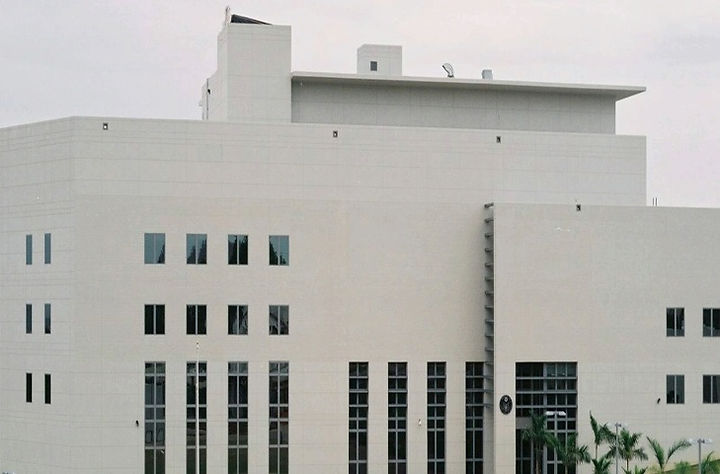
The U.S. Embassy building in Abuja, Nigeria—the Embassy is listed by the FCTA for unpaid ground rent amounting to around $597,000. [Photo Credit: © U.S. Embassy Nigeria / Public Domain]
With over US $5.3 million in unpaid rent from 34 diplomatic missions, Nigeria has issued a hard deadline to recover dues or revoke titles.
Published:
June 15, 2025 at 4:37:08 PM
Modified:
June 15, 2025 at 4:37:08 PM
Nigeria's Federal Capital Territory Administration (FCTA) has issued a stern ultimatum to over 30 foreign embassies and high commissions in Abuja, warning of potential land title revocations if they fail to settle a collective debt of more than $5.3 million in unpaid ground rent.
The move, which has sparked widespread diplomatic concern, follows the FCTA’s publication of a comprehensive list of defaulters in national newspapers and through formal notifications. Affected countries include Russia, Ghana, the United States, France, Saudi Arabia, South Korea, Turkey, Italy, Algeria, and several others. In total, 34 embassies and high commissions, along with several corporations and private entities, have been given a two-week deadline to comply with Nigeria’s ground rent policies or risk losing their rights to prime diplomatic land in the capital.
According to the FCTA, the biggest defaulters include the embassies of Zambia and Niger, each reportedly owing approximately $2 million. The U.S. Embassy is said to owe around $597,000, while the French Embassy has the lowest outstanding balance, with just $323.
Under Nigeria’s land ownership regulations, all land occupants in the capital are required to pay annual ground rent as part of their lease obligations under the Certificate of Occupancy. FCTA officials argue that this rent is crucial for funding infrastructural development and urban maintenance in Abuja, one of Africa’s fastest-growing capital cities.
“The law is clear—every leaseholder, whether individual, corporate, or diplomatic, must fulfill their financial obligations from the 1st of January each year,” an FCTA spokesperson stated. “We can no longer tolerate non-compliance. This is public revenue that supports vital urban services.”
Minister of the Federal Capital Territory, Nyesom Wike, has doubled down on enforcement efforts since taking office, pledging to boost the capital’s internally generated revenue by tightening oversight on land use and property taxation. His office sees this crackdown as both a fiscal necessity and a matter of fairness, particularly as Nigerian citizens and local businesses are held to the same standards.
However, diplomatic observers warn that the FCTA’s strong stance may trigger tensions between Nigeria and affected countries. Embassies enjoy certain privileges and immunities under the Vienna Convention, which complicates enforcement actions. Closing or revoking an embassy’s land title would involve legal and diplomatic hurdles, including issues of sovereign property, compensation, and bilateral relations.
No embassy has officially responded to the FCTA notice as of press time, but several diplomatic sources indicated that quiet negotiations may already be underway. The situation puts Nigeria in a delicate position, balancing fiscal accountability at home with diplomatic decorum abroad.
Analysts also highlight the reputational risks: If Abuja is perceived as being too aggressive toward foreign missions, it could impact foreign investment sentiment and Nigeria’s international image as a stable host nation.
Nevertheless, the government appears resolute. As the two-week deadline looms, embassies will need to decide whether to pay up, negotiate new terms, or risk becoming entangled in a potentially precedent-setting diplomatic standoff.
With billions in infrastructure needs and growing scrutiny over public funds, Nigeria’s message is clear: all occupants of its capital, including foreign powers, must play by the same rules.
Keep Reading



